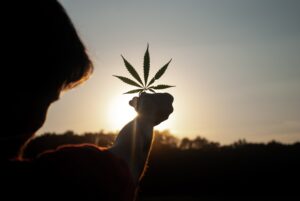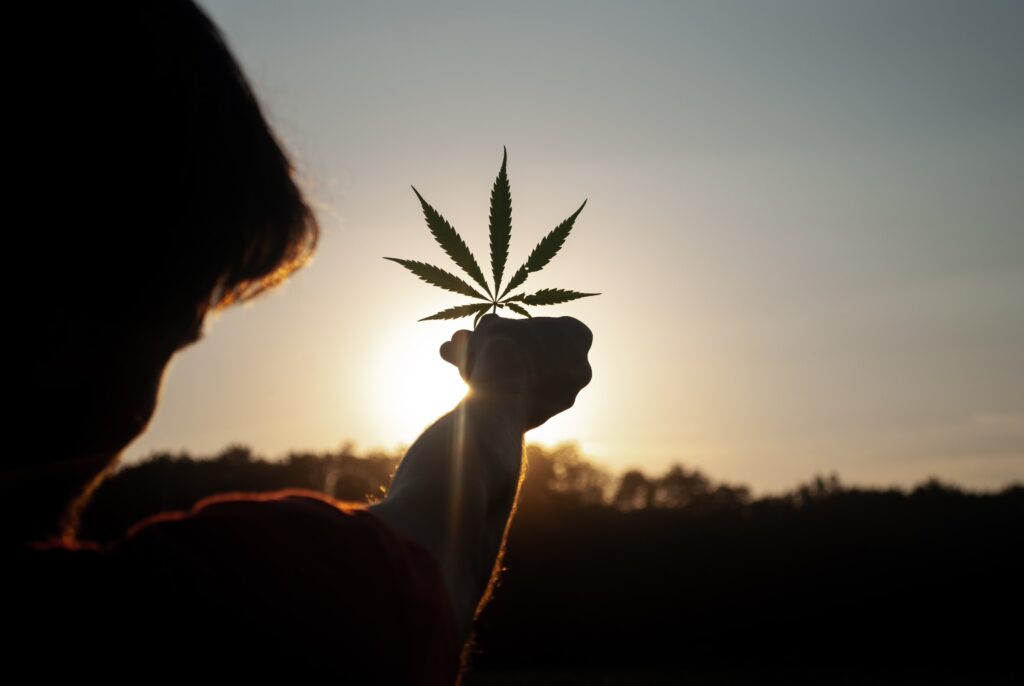By: Emily Wilmink
In 1971, President Richard Nixon launched the “War on Drugs” that drastically increased the role of the federal government in controlling illegal drug use.[1] However, this measure led to the mass incarceration of nonviolent drug offenders, and today, continues to shape a federal system that disproportionately convicts communities of color.[2] Within this system, the disproportionate convictions stem from marijuana use,[3] so many Senators have proposed legislation that would legalize the drug and ultimately stop subsequent arrests. However, Senator Elizabeth Warren has taken legislative action a step further by proposing a federal cannabis pardon.[4] This cannabis pardon could release millions of nonviolent drug offenders and bring justice to communities of color that have been targets of the War on Drugs for years.
Between 2010 and 2018, more than six million drug arrests occurred in the United States.[5] Specifically, in 2018, nearly 700,000 people were arrested for marijuana use, which made up 43% of the total drug arrests in the country.[6] Of those marijuana arrests, 89.6% were for mere possession of marijuana.[7] In 2019, the FBI reported 545,602 arrests for cannabis-related crimes, which was 9% higher than the 495,871 arrests for violent crimes in the same year.[8] Further, similar to the numbers in 2018, in 2019, 92% of the marijuana arrests were for mere possession of the drug.[9] While marijuana arrests already make up a large portion of the overall drug arrests in the United States, out of these arrests, Black Americans are 3.64 times more likely than White Americans to be arrested for marijuana use even though both groups use marijuana at the same rates.[10] Additionally, the ACLU reports that in thirty-one states, racial disparities in arrest rates were larger in 2018 than in 2010.[11]
Currently, twenty-seven states have decriminalized possession of certain marijuana amounts, and thirty-six have legalized marijuana for medicinal purposes.[12] Under the Controlled Substances Act of 1970, marijuana is a Schedule I substance, meaning “it has a high potential for abuse, no currently accepted medical use in treatment in the United States, and a lack of accepted safety for use under medical supervision.”[13] However, many drug policy experts have pointed out that the Controlled Substance Act is “flawed, outdated, and unscientific,”[14] so many legislators have been pushing drug reform to the top of legislative priorities in recent years. For example, in late July of 2021, Senator Charles Schumer, Senator Ron Wyden, and Senator Cory Booker introduced the Cannabis Administration and Opportunity Act in the Senate to effectively lessen the regulation of marijuana.[15] Specifically, this bill was intended to “expunge federal convictions of nonviolent marijuana charges, remove the drug from the Controlled Substances Act, and set up a system to tax marijuana in states that legalize it.”[16] The Cannabis Administration and Opportunity Act would also “empower[] states to implement their own cannabis laws.”[17]
To remedy the mass incarceration of marijuana offenders, and its disproportionate impact on offenders of color, Senator Elizabeth Warren has recently proposed a federal cannabis pardon that, if implemented, would pardon the cannabis convictions of nonviolent offenders, and ultimately expunge their criminal record of such an offense.[18] Under the Constitution, the President has the power to “grant Reprieves and Pardons for Offenses against the United States.”[19] Except in the cases of impeachment, the Presidential pardon power extends to all federal offenses and may be used at any point after the offense is committed.[20] While the president may use this power to pardon individual offenders, the president can also “issue a general amnesty to a class of people.”[21] Therefore, President Biden, at the federal level, has the authority to pardon marijuana-related offenses without disrupting the Controlled Substances Act.[22]
The efforts of Senator Charles Schumer, Senator Ron Wyden, and Senator Cory Booker in their work on the Cannabis Administration and Opportunity Act undoubtedly illustrate positive progress in the field of drug reform. However, in conjunction with those efforts, Senator Elizabeth Warren’s proposal for a federal cannabis pardon would further rectify the discriminatory actions that were waged against communities of color since the onset of the War on Drugs. In a letter to President Biden, Senator Warren explained a mass cannabis pardon would “mark the beginning of a reversal of decades of ineffective and discriminatory cannabis policies, allowing Americans to return to their communities, find housing and jobs, and rebuild their lives without the burdens of an unjustly imposed criminal record.”[23] Ultimately, the federal cannabis pardon will be a promising proposal to watch in the new year, and if implemented, will bring justice to a system that is intended to provide equality to all.
[1]A History of the Drug War: The Early Stages of Drug Prohibition, Drug Pol’y All., https://drugpolicy.org/issues/brief-history-drug-war (last visited Jan. 11, 2022).
[2] Id.
[3] ACLU, A Tale of Two Countries: Racially Targeted Arrests in the Area of Marijuana Reform 21 (2020), https://www.aclu.org/sites/default/files/field_document/marijuanareport_03232021.pdf.
[4] Kyle Jaeger, Elizabeth Warren Pushes Biden To Do Mass Marijuana Pardons With The ‘Stroke Of A Pen,’ Marijuana Moment (Nov. 19, 2021), https://www.marijuanamoment.net/elizabeth-warren-pushes-biden-to-do-mass-marijuana-pardons-with-the-stroke-of-a-pen/.
[5] A Tale of Two Countries, supra note 3, at 5.
[6] Id.
[7] Id. at 7.
[8] Emily Earlenbaugh, More People Were Arrested for Cannabis Last Year Than For All Violent Crimes Put Together, According to FBI Data, Forbes (Oct. 6, 2020), https://www.forbes.com/sites/emilyearlenbaugh/2020/10/06/more-people-were-arrested-for-cannabis-last-year-than-for-all-violent-crimes-put-together-according-to-fbi-data/?sh=29b1c9be122f.
[9] Id.
[10] A Tale of Two Countries, supra note 3, at 5.
[11] Id.
[12] Lexi Lonas, Warren Presses Biden On Pardons For Nonviolent Cannabis Convictions, The Hill (Nov. 10, 2021, 3:30 PM), https://thehill.com/homenews/senate/580998-warren-presses-biden-on-pardons-for-federal-nonviolent-cannabis-convictions.
[13] Drug Fact Sheet: Marijuana/Cannabis, Dep’t of Just. (Apr. 2020), https://www.dea.gov/sites/default/files/2020-06/Marijuana-Cannabis-2020_0.pdf.
[14] Removing Marijuana From the Schedule of Controlled Substances, Drug All. Pol’y (Jan. 10, 2019), https://drugpolicy.org/resource/removing-marijuana-schedule-controlled-substances.
[15] Lexi Lonas, Senate Democrats Unveiling Push to Legalize Marijuana at Federal Level, The Hill (July 14, 2021, 8:28 AM), https://thehill.com/homenews/senate/562901-top-senate-democrats-unveiling-push-to-legalize-marijuana-at-federal-level.
[16] Id.
[17] Senator Cory Booker et al., Cannabis Administration & Opportunity Act: Discussion Draft 1, https://www.democrats.senate.gov/imo/media/doc/CAOA%20Detailed%20Summary%20-.pdf (last visited Jan. 11, 2021).
[18] Jaeger, supra note 4.
[19] Does the President Have the Power to Legalize Marijuana?, Cong. Rsch. Serv. 3 (Nov. 4, 2021), https://crsreports.congress.gov/product/pdf/LSB/LSB10655.
[20] Id.
[21] Id.
[22] Id.
[23] Elizabeth Warren (@SenWarren), Twitter (Nov. 10, 2021, 6:02 PM), https://twitter.com/SenWarren/status/1458570726944935947/photo/2.


